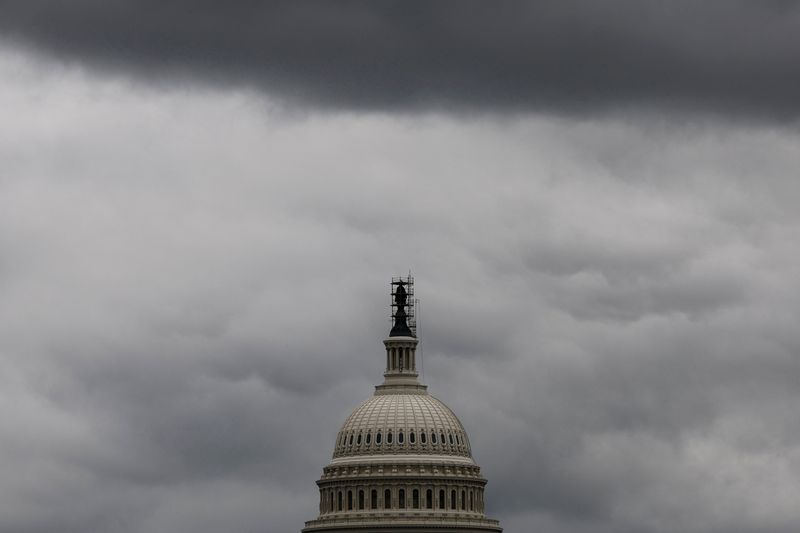By David Lawder
WASHINGTON (Reuters) -The Congressional Budget Office estimated on Tuesday a U.S. federal deficit of $1.834 trillion for fiscal 2024, the highest in the post-COVID era, as debt interest costs jumped sharply and outlays rose for Social Security, Medicare and health insurance tax credits.
The estimate, which precedes the U.S. Treasury Department's year-end budget report later this month, shows a deficit up 11% from the $1.7 trillion fiscal 2023 gap but slightly lower than the $1.9 trillion deficit estimated in June by CBO.
WHY IT'S IMPORTANT
U.S. Vice President Kamala Harris is arguing that she would be more fiscally responsible as president than Republican rival Donald Trump, pledging to fully offset new spending with tax increases elsewhere. A fiscal think-tank, the Committee for a Responsible Federal Budget, estimated on Monday that Trump's plans would pile up $7.5 trillion in new debt, more than twice the $3.5 trillion from Harris' proposals.
But after significant U.S. deficit declines in 2021 and 2022 as the economy recovered and COVID-19 rescue spending faded, deficits have grown significantly during the past two years, and CBO estimates that "baseline" deficits, which assume no changes to current laws, will grow $22 trillion over the next 10 years.
BY THE NUMBERS:
CBO estimated that total revenues rose 11% to $4.918 trillion, powered by higher individual income taxes and corporate income taxes as economic growth remained strong. The non-partisan budget referee agency estimated that outlays for the fiscal year ended Sept. 30 totaled $6.752 trillion, up 11% from fiscal 2023.
The biggest growth in outlays comes from interest on the public debt, which rose 34% to $950 billion, while spending on Medicare, Social Security and the military also increased.
The year-on-year deficit comparisons were affected by the fiscal 2023 reversal of $330 billion in costs associated with President Joe Biden's student loan forgiveness plan that was struck down by the Supreme Court. Without the reversal, last year's deficit would have exceeded $2 trillion.
KEY QUOTES
Because of this anomaly, the White House characterized the fiscal 2024 deficit as a decrease from last year.
"While the deficit is lower than it was last year, President Biden believes we need to reduce the deficit further by making the wealthy and large corporations pay their fair share, and by reducing wasteful spending on special interests like Big Pharma," White House spokesperson Jeremy Edwards said in a statement.

Some Republicans seized on the estimates to claim that Biden and Harris were fiscally irresponsible.
"President Biden and Vice President Harris have ignored resounding messages from Iowans and Americans nationwide, as well as alarms from global credit ratings companies. By consistently choosing a spendthrift agenda over fiscal sanity, this administration has hamstrung our economy for generations to come," Republican Senator Chuck Grassley said in a statement.